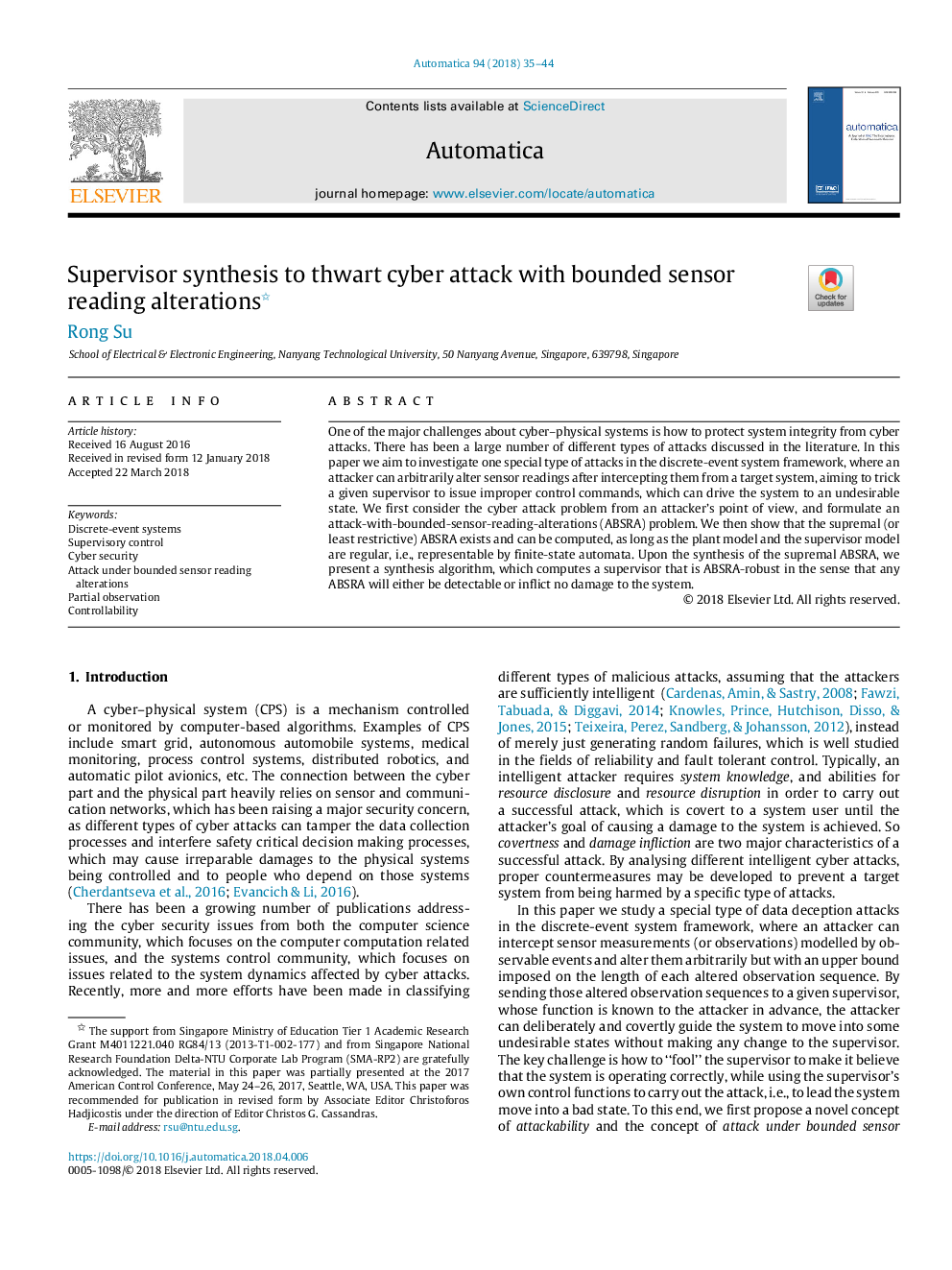| Article ID | Journal | Published Year | Pages | File Type |
|---|---|---|---|---|
| 7108305 | Automatica | 2018 | 10 Pages |
Abstract
One of the major challenges about cyber-physical systems is how to protect system integrity from cyber attacks. There has been a large number of different types of attacks discussed in the literature. In this paper we aim to investigate one special type of attacks in the discrete-event system framework, where an attacker can arbitrarily alter sensor readings after intercepting them from a target system, aiming to trick a given supervisor to issue improper control commands, which can drive the system to an undesirable state. We first consider the cyber attack problem from an attacker's point of view, and formulate an attack-with-bounded-sensor-reading-alterations (ABSRA) problem. We then show that the supremal (or least restrictive) ABSRA exists and can be computed, as long as the plant model and the supervisor model are regular, i.e., representable by finite-state automata. Upon the synthesis of the supremal ABSRA, we present a synthesis algorithm, which computes a supervisor that is ABSRA-robust in the sense that any ABSRA will either be detectable or inflict no damage to the system.
Related Topics
Physical Sciences and Engineering
Engineering
Control and Systems Engineering
Authors
Rong Su,
